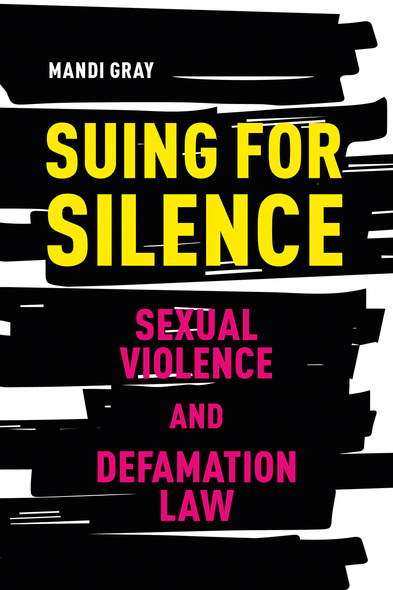Suing for Silence: Sexual Violence and Defamation Law
Mandi Gray (pictured)
UBC Press, 2024

Review by Julie S. Lalonde
In her debut book, Suing for Silence: Sexual Violence and Defamation Law, Mandi Gray combines personal experience with extensive research to demonstrate how defamation law is an increasingly common way to silence survivors and their allies.
Gray is currently being sued for social media posts that showed support for another sexual assault survivor. Because it’s an ongoing lawsuit, Gray is unable to offer a rationale for posting them and can only vaguely allude to the contents of the posts. She nonetheless demonstrates she is not alone by including the voices of other survivors and their allies who have been threatened with defamation lawsuits.
Gray also deftly shows us how the rise of these types of lawsuits is no accident, but rather an obvious consequence of the (marginal) progress made following the #MeToo movement. Social media has created an opportunity for survivors to bypass gatekeepers and disseminate their stories directly to an audience. But “silence breakers” might circumvent traditional institutions like mainstream media, only to be caught in the insidious net of the civil legal system.
Suing for Silence exposes civil suits as a form of violence that also deter other victims from speaking out. Gray walks readers through the civil suit process, from initial serving to the discovery phase to trial, and expertly demonstrates how even “threatening a lawsuit is an extension of an abusive power dynamic.”
Civil suits are expensive, time-consuming, and profoundly invasive. Most survivors lack the financial resources to fight them, so it’s often easier to capitulate to the demands. Even if you are exonerated or the lawsuit is dropped, you are still silenced until the lawsuit concludes. How can we expect systemic change if we can’t even name our realities?
This book is essential reading for survivors to make an informed decision about breaking the silence, but it’s also imperative for anyone who has ever wondered, “Why didn’t she speak up?”

